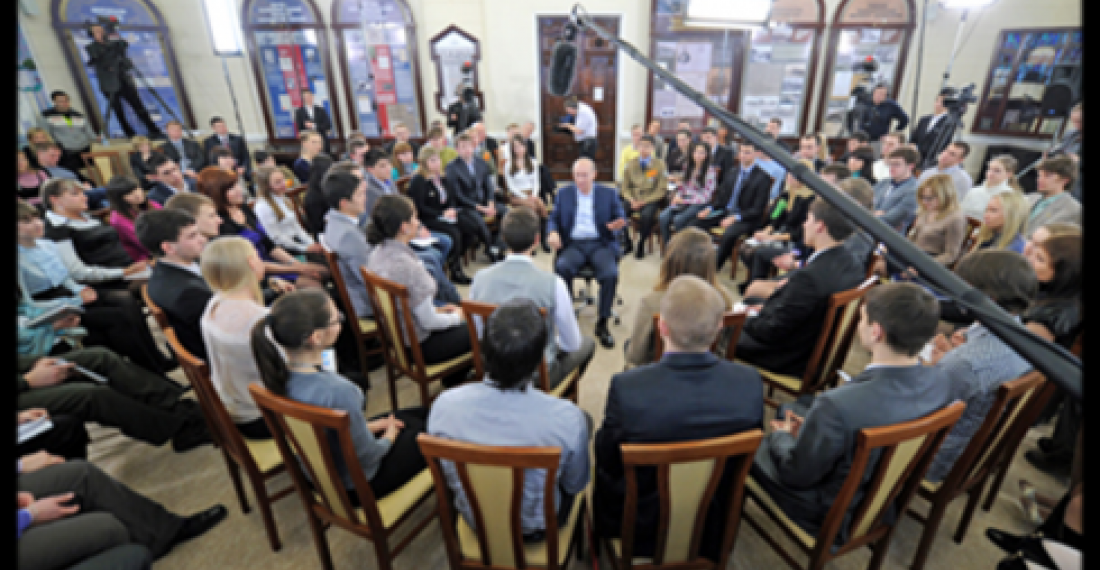Vladimir Putin is electioneering. Yesterday he was in Tomsk where he met University students in an informal atmosphere. “I really like talking to audiences like this one,” the Russian prime minister told the students. “I always enjoy it, but it’s especially nice on St Tatyana’s day, the day of Russian students.”
Putin's speech was wide-ranging, and for most of the time focused on domestic issues where Putin spoke in calm and somewhat philosophical way to his student audience, including about the importance of money and how money was not everything in life. He said some people believe that they have achieved success in life because they enjoy life and have a sense of personal fulfilment.
At the end of the three and a half hours meeting one student asked him about elections in Kazakhstan and the US reaction. Putin accused the United States of attempts to dominate the world and challenging internal political procedures in other countries as a tool for achieving that goal. “The reason is the U.S. foreign policy doctrine. They want to control everything… sometimes I have the impression that the United States does not need allies, that it needs vassals,” the prime minister said. “They are not prepared to cooperate on equal terms either with Europe or us. Cooperation on equal terms means determining threats together and working out a system of response to them together. They reject that flatly,” he said, referring to the missile defence system the U.S. is building in Europe. According to Putin, one of the American ways to influence other countries is to “doubt everything and say that you do not meet certain standards” but “they work out these standards themselves”.
source: commonspace.eu with Itar-Tass and the Press Service of the government of Russia
photo: Prime Minister of Russia Vladimir Putin talking with students at Tomsk University on 25 January 2012 (photo courtesy of the Press Service of the government of Russia)
Commentary
PUTIN SAYS THE UNITED STATES ATTEMPTS TO DOMINATE THE WORLD







